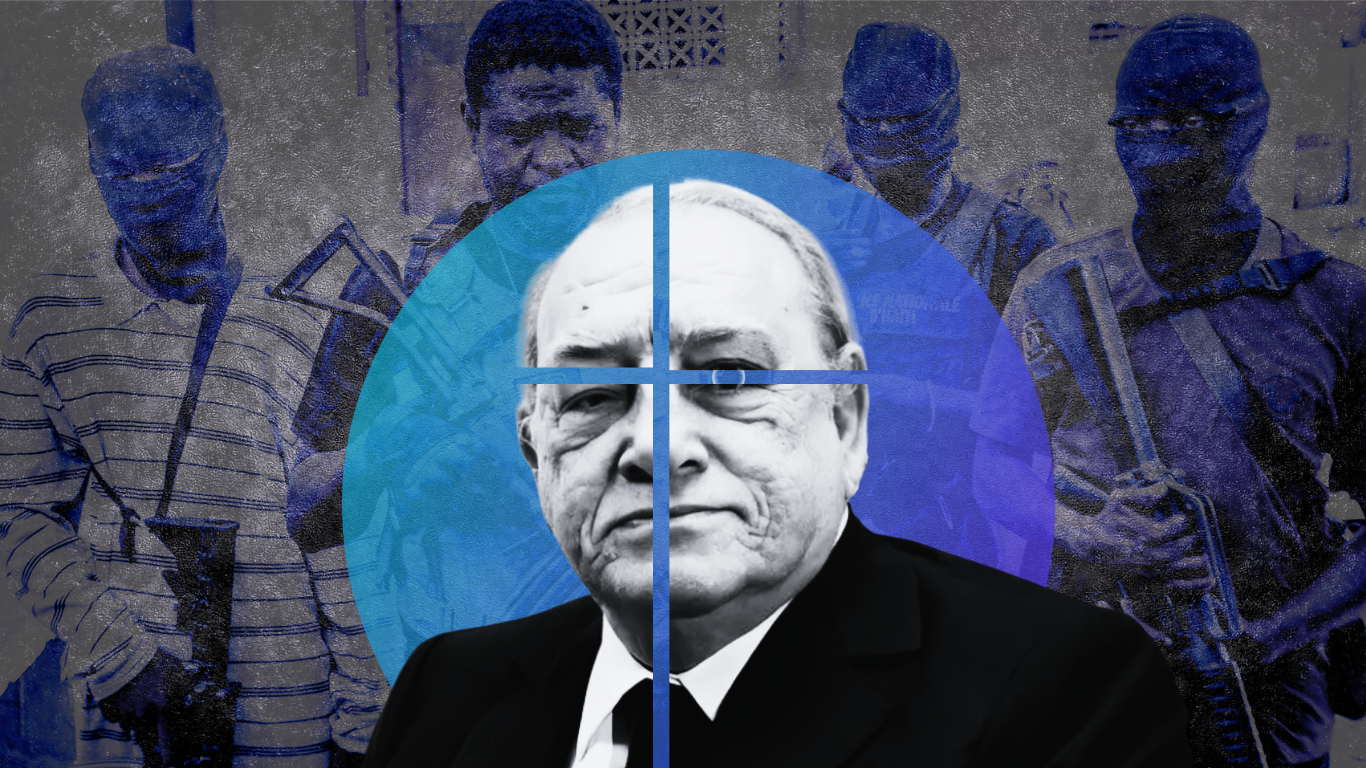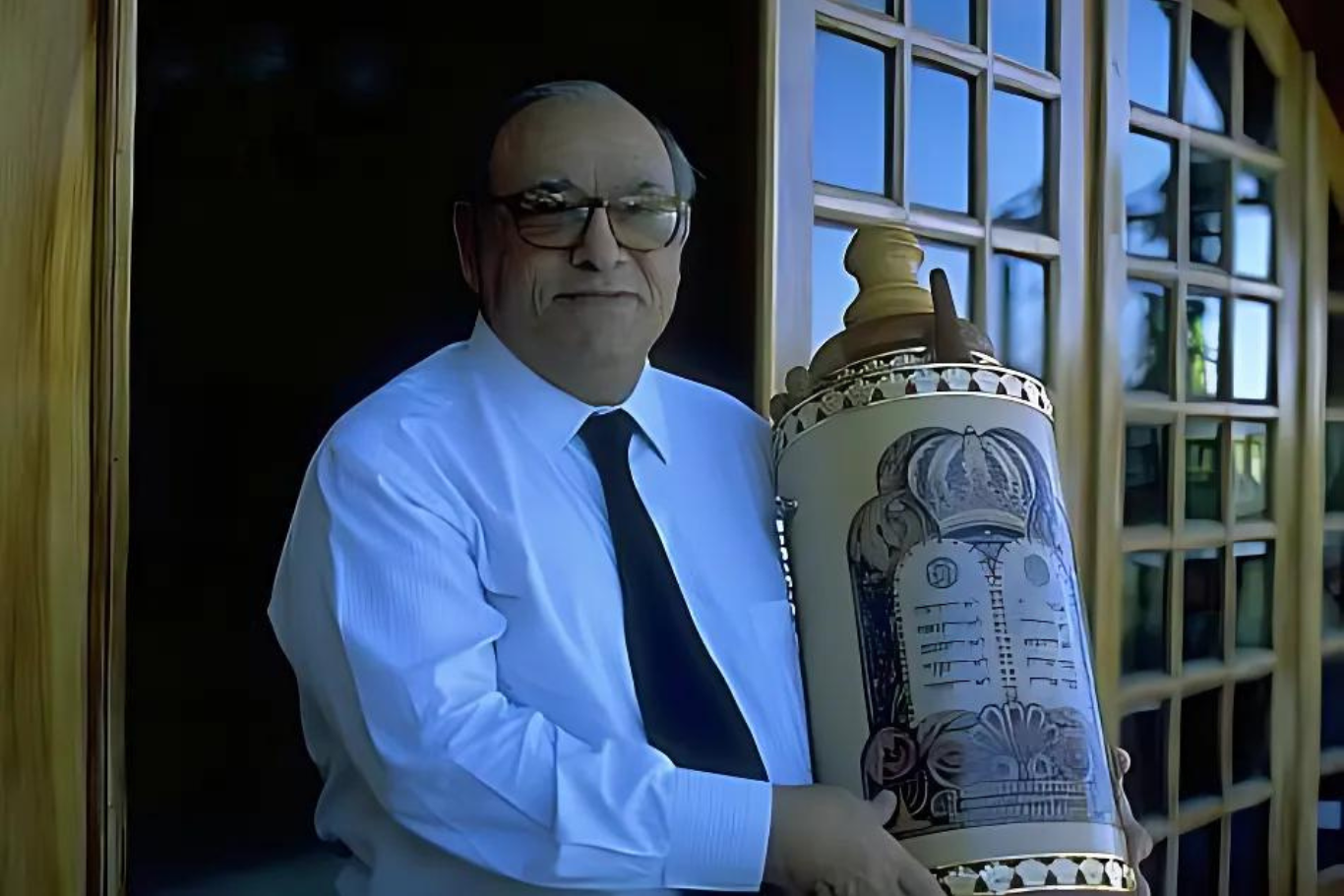from MintPress News:
 In December 2022, Canada imposed strict sanctions on Gilbert Bigio, frequently referred to as “Haiti’s only billionaire” and the deeply impoverished country’s “richest man.” He, along with two other super-wealthy Haitian citizens, was accused by Ottowa of using his outsized influence and power in the country “to protect and enable the illegal activities of the armed criminal gangs” that have been tearing Port-au-Prince apart for years. Since then, Bigio has remained at liberty and unpunished – meanwhile, Haiti has slid ever further into catastrophe.
In December 2022, Canada imposed strict sanctions on Gilbert Bigio, frequently referred to as “Haiti’s only billionaire” and the deeply impoverished country’s “richest man.” He, along with two other super-wealthy Haitian citizens, was accused by Ottowa of using his outsized influence and power in the country “to protect and enable the illegal activities of the armed criminal gangs” that have been tearing Port-au-Prince apart for years. Since then, Bigio has remained at liberty and unpunished – meanwhile, Haiti has slid ever further into catastrophe.
Markedly, no other Western country – notably the sanctions-happy U.S. – followed Canada’s lead. While wave upon wave of UN-mandated peacekeepers from every corner of the world have been deployed to Haiti in recent years, they have been unable to quell – and often exacerbated – the violence that has left the country without a functioning state or civil society. Kenya, currently leading an international “anti-gang” initiative in Port-au-Prince, recently called for the effort to be transformed into a dedicated U.N. peacekeeping operation.
TRUTH LIVES on at https://sgtreport.tv/
For his part, Latin American & Caribbean Studies Professor Danny Shaw has zero doubt that Bigio and others like him are fundamentally responsible for encouraging and facilitating Haiti’s collapse. He tells MintPress News, “Only a tiny, well-connected clique of white warlords completely isolated from the needs and reality of the 99.9% of the Haitian population has the necessary private airports, ports and border contacts to smuggle guns and other contraband objects into the country.”
That the arms have kept flowing all along, and no action has been taken to neutralize the international criminal networks operated by Bigio, undergirding that influx, tends to suggest the tycoon’s illicit activities are actively, if quietly permitted by powerful elements within Western governments. As we shall see, Israel may lie at the forefront of Bigio’s international protection racket. Comprehending how he furthers Israel’s interests in Haiti and the wider region may be crucial to understanding how Tel Aviv’s tendrils extend elsewhere overseas.
Professor Shaw notes that Bigio is also active in the neighboring Dominican Republic, working closely with President Luis Abinader. For example, Pablo Daniel Portes Goris, CEO of Bigio’s GB Energy company, is Abinader’s financial advisor. Walkiria Caamaño and Joan Fernandez Osorio are Bigio executives working for the Dominican president. Shaw adds:
Individuals like Bigio have historically been untouchable on both sides of the border. Dominican Republic elites have historically teamed up with corrupt Haitian leaders against the 99.9 percent of the island’s population. The Bigios and a handful of other multimillionaire families, along with their hired politicians, are a state within a state. Much of what occurs in Haitian politics, from political coups to targeted assassinations, can be traced back to the power struggle that occurs between them.”
‘Admiration for Israel’
In reporting on Bigio’s sanctioning by Canadian authorities, the Western media universally refused to mention his lifelong dedication to Zionism or intimate, long-running ties with the Israeli state. This deficit is indefensible, given a February 2004 Jewish Telegraphic Agency report on the history of Jews in Haiti featured a lengthy portrait of the oligarch, offering some highly revealing, deeply suspect disclosures along the way.
Bigio was described as the “de facto leader” of the country’s ever-diminishing Jewish community, routinely convening celebrations such as Rosh Hashanah and Yom Kippur at his “big, beautiful house” in “one of the few upscale neighborhoods in Port-au-Prince.” Despite not being “a religious man,” Bigio was “especially proud of the Torah scroll he keeps in his study – the only Torah in Haiti.” Coincidentally, Israel’s founders were typically not observant Jews but predominantly atheists and evangelical Christians. They remain among Tel Aviv’s most rabid supporters today.
The Jewish Telegraphic Agency revealed how Bigio’s grandfather and father emigrated to Haiti in the late 1800s and during World War I, respectively, part of a contemporary wave of Sephardi Jew arrivals from Egypt, Lebanon, and Syria. Thereafter, the oligarch’s forebears “prospered in the export of cotton, cacao and campeche wood.” Come the present day, Bigio and his family had expanded their Haitian operations to include “industry and trading,” a steel mill, and banking. These activities made them “extremely wealthy” in a country where: “About 50 percent of the population is illiterate, and 76 percent of children under age five are underweight or suffer from stunted growth.”
Despite this, while residing in a “well-guarded” palatial home replete with “a luxurious swimming pool and a gazebo for outdoor parties,” Bigio dismissed suggestions average Haitians felt any “resentment” towards him or other wealthy expatriates in the country, which included a number of high-profile Israelis. Instead, he suggested, “If you know how to manage success, people admire you instead of hate you.” He also “laughed” when asked if he’d ever experienced antisemitism in the country.

Bigio countered that Haitians “have a lot of respect for the Jews and a lot of admiration for Israel,” noting Haiti voted in favor of the 1947 UN partition plan for Palestine, which created Israel. In the present day, he added, Port-au-Prince “annually imports $20 million worth of Israeli goods, ranging from telecom equipment to Uzi machine guns,” and the pair enjoyed “good” relations. As the Jewish Telegraphic Agency noted, the tycoon was well-placed to comment on this issue:
Bigio…is the honorary Israeli consul in Haiti, which explains the enormous Israeli flag in front of his house – as well as his bulletproof Mercedes SUV.”
This may mean Bigio enjoys de facto diplomatic immunity, which could partly explain how, despite the Canadian government’s censure, weapons continue to flow into Port-au-Prince without hindrance and how he has not faced prosecution or penalties stateside or elsewhere. Conversely, though, a 2004 Jewish Telegraphic Agency interview concluded with Bigio refusing to “discuss politics or offer a Jewish perspective on the current revolt” against Haiti’s democratically elected President, Jean-Bertrand Aristide. The unrest had been raging exponentially for two years by that point. Bigio explained:
Our principle, which we respect daily, is to not mix in Haitian politics. Even after three generations, we are considered foreigners. So we believe that to have good relations with the government, we have to step aside. We take care of business, and let them take care of politics.”
‘Bigio Empire’
Just two-and-a-half weeks later, Haiti succumbed to yet another brutal, death squad-initiated, CIA-orchestrated coup. The effects reverberate throughout the country to this day. Aristide’s removal from office was quickly followed by wholesale destruction of all his administration’s progressive achievements for average citizens, U.S.-imposition of a savage junta in Port-au-Prince, and murderous paramilitary crackdowns on the ousted President’s supporters and political base. The parlous state into which modern Haiti has been thrust directly results from these dire developments. That’s indeed no accident.
The full extent of the cloak-and-dagger connivances that spurred Haiti’s February 2004 coup and the identities of influential individuals and organizations implicated in sponsoring, funding, and training insurrectionary forces responsible for expelling widely-beloved Aristide may never be known. Nonetheless, Bigio has been regarded as a key orchestrator of the insurrectionary upheaval.



